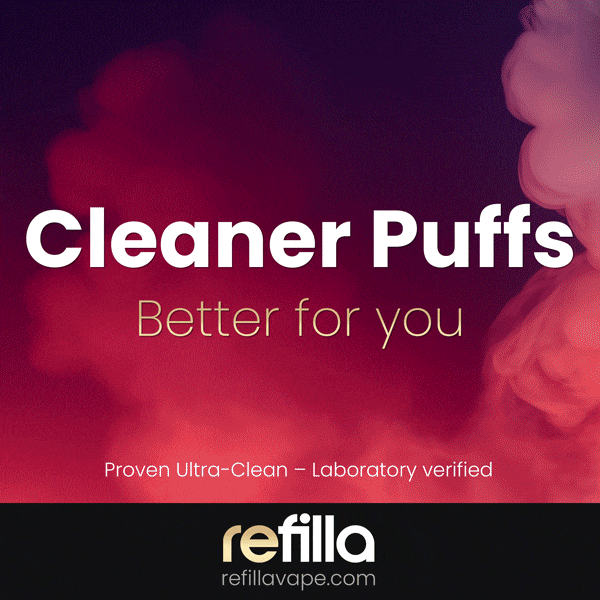Regardless of how you sell your vape products – whether through direct sales, online, by mail order, or as a manufacturer or importer – it is essential to comply with various regulations as required by UK law.
Vape manufacturers and all businesses selling vapes, both online and offline, must be well-informed and take steps to minimise the environmental impact of vaping.
The Impact of Vaping on the Environment
The success of vaping in helping millions of smokers to quit smoking is undeniable. Its popularity has saved countless lives across the world. However, this success has had an impact on the environment, largely due to single-use vapes not being disposed of correctly.
The frustrating part is that disposable vapes have been found to be highly recyclable. A recent study from Waste Experts concluded that the biggest problem is that consumers are largely unaware that vapes can or should be recycled.

People do not try to recycle these products because they do not know they should or do not have easy access to a recycling option. Consequently, vapes are mainly discarded in regular household waste.
The vaping industry must address this issue by helping to reduce the number of vapes being thrown into household trash. They can do this by complying with the UK regulations and offering recycling options.
Meeting Environmental Regulations for Retailers
As of January 2024, new regulations in the UK require all vape retailers to establish a recycling facility for customers to return used or unwanted vaping devices.
Retailers are required to provide a free in-store take-back service for their customers. They are obligated to accept returns of vapes that share similar functionalities to those available in their stores. Therefore, if a retailer specialises in a specific brand of disposable vapes, they must be prepared to accept returns of all types of disposable vapes.
It is crucial for retailers to ensure that the vapes collected in-store are disposed of appropriately to promote recycling efforts. Retailers will need to engage a vape collection service provider to oversee the collection of vapes from their premises.
In cases where a customer attempts to return an illegal vape, retailers have the authority to refuse acceptance and should not be included in the recycling collection points.
It is also necessary to document the quantity of vaping units received through takeback at stores and the quantity collected by a vape collection service.
What Information Should Retailers Provide to Customers?
Retailers must inform customers about the vape collection service available and how they can make use of it. The Office for Product Safety and Standards (OPSS) has developed a template poster that retailers can use.
It is crucial to provide customers with accurate information on recycling their vapes. This includes details on the take-back service you offer, instructions on how to reuse and recycle EEE, the importance of separating this waste from other types of waste, and the consequences of not recycling vapes.
What Happens if Retailers Don’t Comply?
Since March 2023, The Office for Product Safety and Standards (OPSS) has enforced the collection of vapes and other electrical products.
Companies can be prosecuted and get an unlimited fine if they do not comply with the regulations. They may also get warning letters before enforcement action, fines or prosecutions are undertaken.
Meeting Environmental Regulations for Producers
Producers are responsible for the end-of-life environmental impact of their products, their packaging, electrical and electronic equipment and batteries.

EEE producers in the UK include manufacturers who sell their own branded products, resell equipment from other companies under their brand, operate internationally, and distribute EEE directly to the UK market through remote sales or imports for commercial use.
Companies manufacturing under five tonnes of electrical or electronic equipment annually, including vapes, are required to register as small producers in compliance with the WEEE regulations. Small producers are required to register with either their environmental regulator or a PCS and disclose the amount of EEE they have placed on the market.
On the other hand, companies producing more than five tonnes are obligated to participate in a producer compliance scheme. Large producers must join a Producer Compliance Scheme and report the quantity of EEE they have placed on the market.
The same rules apply to batteries. If you are a small producer and produce less than one ton, you must register with the environmental regulator and submit data on the batteries you placed on the market.
If you are a larger producer and you produce more than one ton, you must join a Battery Compliance Scheme and submit data on the batteries you placed on the market.
Stay up to date with the vape industry rules and regulations
To continue to stay up to date on topics like this and more, subscribe to our magazine and get all the latest regulatory updates, vape news and more.






